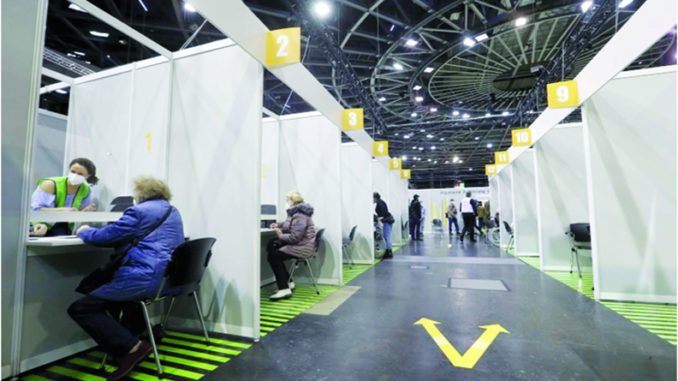
London (TIP): A year after COVID-19 began its devastating march across Europe, reversals of fortune, political quarrels and vexing public-health paradoxes are complicating efforts to contain a deadly third wave of contagion.
Germany, widely touted as a success story last year in the outbreak’s initial months, is struggling with a sluggish vaccine rollout, soaring deaths and widespread discontent, while Britain, whose early coronavirus response was criticized as haphazard, has inoculated more than a fifth of its population. France is watching with alarm as a new variant gains a foothold in the country’s east. In Italy, ravaged in the pandemic’s early months, a new government is raising hackles with the prospect of tightened health measures. Portugal, which fared relatively well last year while the caseload soared in neighboring Spain, now has one of the world’s highest coronavirus death rates.
Across Europe, strict lockdowns have been credited in several nations with driving down transmission of the virus — but at the same time, public resistance to such restrictions is sharpening, sometimes spearheaded by far-right groups. And the 27-nation European Union, like the United States, is closing in on the unfathomable tally of half a million coronavirus deaths. Amid a dark winter, some bright spots have emerged. Britain said this week it has given first doses of the vaccine to 15 million people — more than 20% of the population. Prime Minister Boris Johnson, who suffered a life-threatening bout of COVID-19 last year, called the rollout an extraordinary national achievement, although he coupled that with a warning that difficult times still lie ahead. For many in Britain, the brisk pace of mass inoculation marks a cheering turnabout from early stumbles. The country began its vaccine program in December, three weeks before vaccine regulatory approval occurred in the EU, which Britain exited at the beginning of 2020. Since the rollout’s start, Britain has been meeting its own ambitious vaccination benchmarks, beginning with its most vulnerable populations.
At the same time, though, Britons are chafing under the third lockdown of the pandemic, now in its seventh week. Schools are closed and people have been told not only to work from home if possible, but to avoid going out for any reason. Bars and pubs have closed their doors; stores have been shuttered if their wares are deemed nonessential, and restaurants offer takeout only.





Be the first to comment